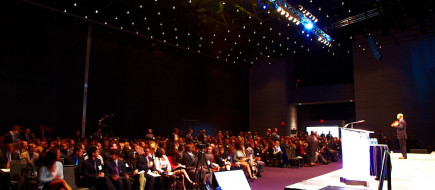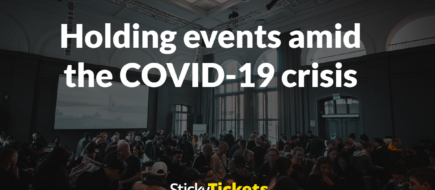Contingency Plans and Debriefing For Your Event

A lot of work goes into event management – there’s so much to organise, book, confirm, promote, trial, etc, etc (the list goes on!). As a result, it’s very easy to overlook some things. However, there are two very important tasks – tasks often brushed aside – which are critical for making your event the best it can be. These tasks are contingency plans and debriefing for your event.
Contingency Planning
Contingency plans are absolutely necessary for any event. Even the most organised and well-thought out event isn’t immune to last minute issues. Often these issues won’t have anything to do with you and are almost always out of your control. Ironically, it’s for this reason that contingency plans get forgotten, but also why they are absolutely vital in your event planning process.
So what does contingency planning involve? It means having a plan B – and sometimes even a plan C and D. You need to have a plan for almost every element of your event. And the plans need to be robust and practical. In some cases, contingency planning will involve developing and communicating a well-established plan that details every alternative venue, technology and equipment used, personnel, etc. They will include contact details as well as step-by-step instructions of what to do in the case of the original plan falling through. The contingency plan should be clearly communicated with your whole team.
For smaller, less formal events, contingency planning might simply involve having backup plans for things like microphones or speakers that don’t work, bad weather, a team member not being able to work anymore, etc. Things like bringing extra copies of speeches or guest lists is good contingency planning, and can really help your event run more smoothly.
Debriefing
Although you might want to collapse in a heap after your event – or you might never want to talk your team members again (but hopefully not!), it is important that you take the time to debrief. After all, without an effective debriefing session, you and your team will find it difficult to apply the lessons you learnt from the event. Debriefing is not only important for running great events, but also for personal development and learning.
So when should you debrief with your team? Hold off until after post-event celebrations and allow some time for rest and recovery. But don’t wait too long – you don’t want your team to forget details of the event, or become distracted by new projects. Two to three days after your event is ideal. Make sure that everyone is available to attend, and frame the debrief session positively.
When talking to your team, first congratulate them on the event and discuss achievements from the night. Then invite your team members to talk about anything they think didn’t go so well, and ask them why they think that. Prompt open discussion on how the situation could have been handled better, and encourage your team members to verbalise any key learnings they can apply for the next event. Secondly, ask if there were any issues throughout the pre-event planning and organisation stages. If any issues arise discuss with your team better strategies for next time – whether this be clearer communication, better time management, or maybe just letting someone know that expectations were too high. End the debrief on a positive note, getting your team excited for your next event, and celebrating the successes of the most recent one.



